Menu
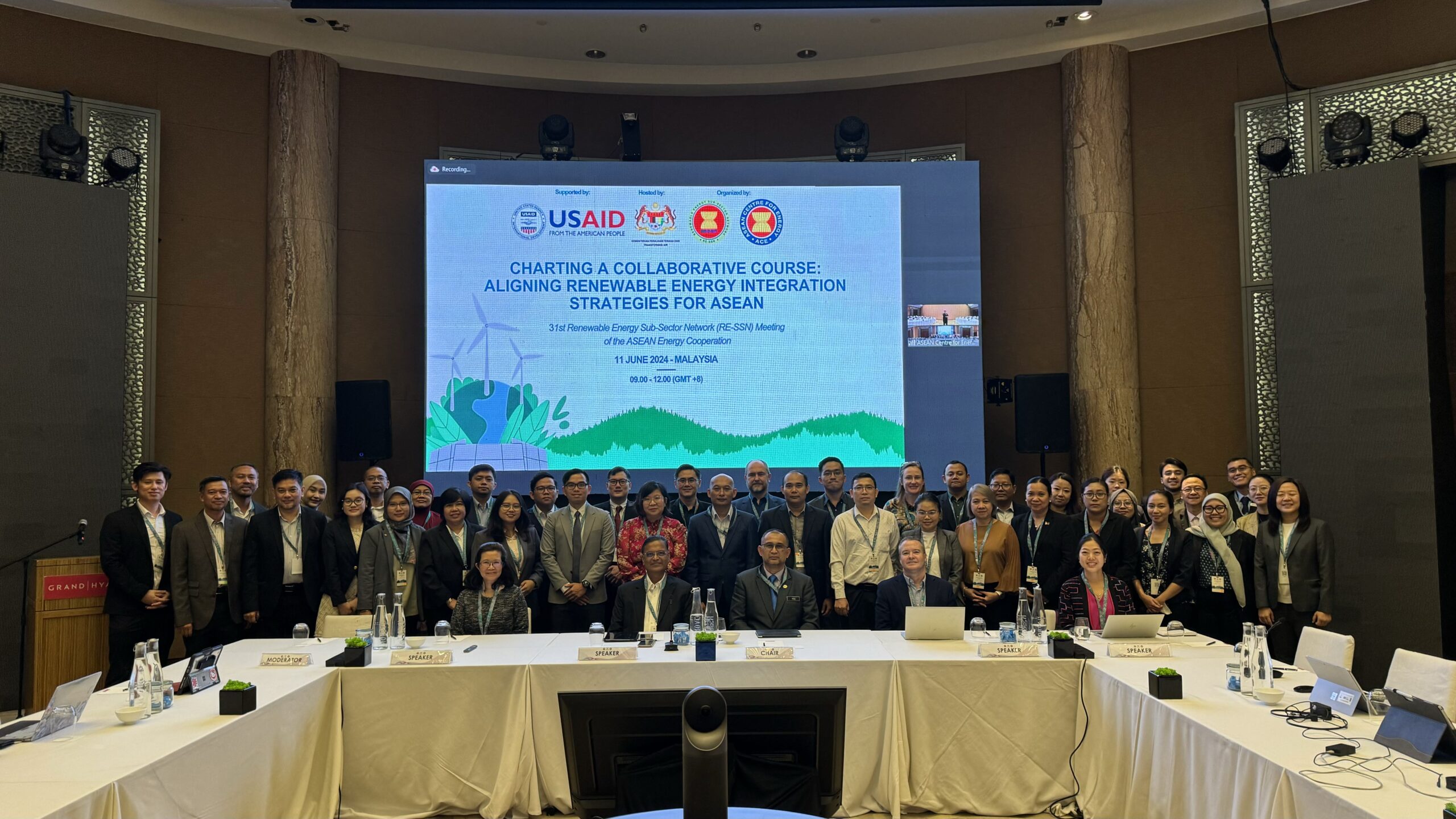
Photo 1. Participants of the Workshop
On 11 June 2024, the ASEAN Centre for Energy (ACE), supported by the USAID Southeast Asia Smart Power Program (SPP) and hosted by Malaysia’s Ministry of Energy Transition and Water Transformation (PETRA), organized the event “Charting a Collaborative Course: Aligning Renewable Energy Integration Strategies for ASEAN.” This event was held in Kuala Lumpur, Malaysia, as part of the 31st Renewable Energy Sub-Sector Network (RE-SSN) Associated Meetings. It was attended in person by nearly all ASEAN Member States (AMS) and included representatives from the ASEAN Secretariat, international organizations, dialogue partners, and the private sector. In total, the workshop was attended by 65 participants, with a demographic composition of 52% male and 48% female.
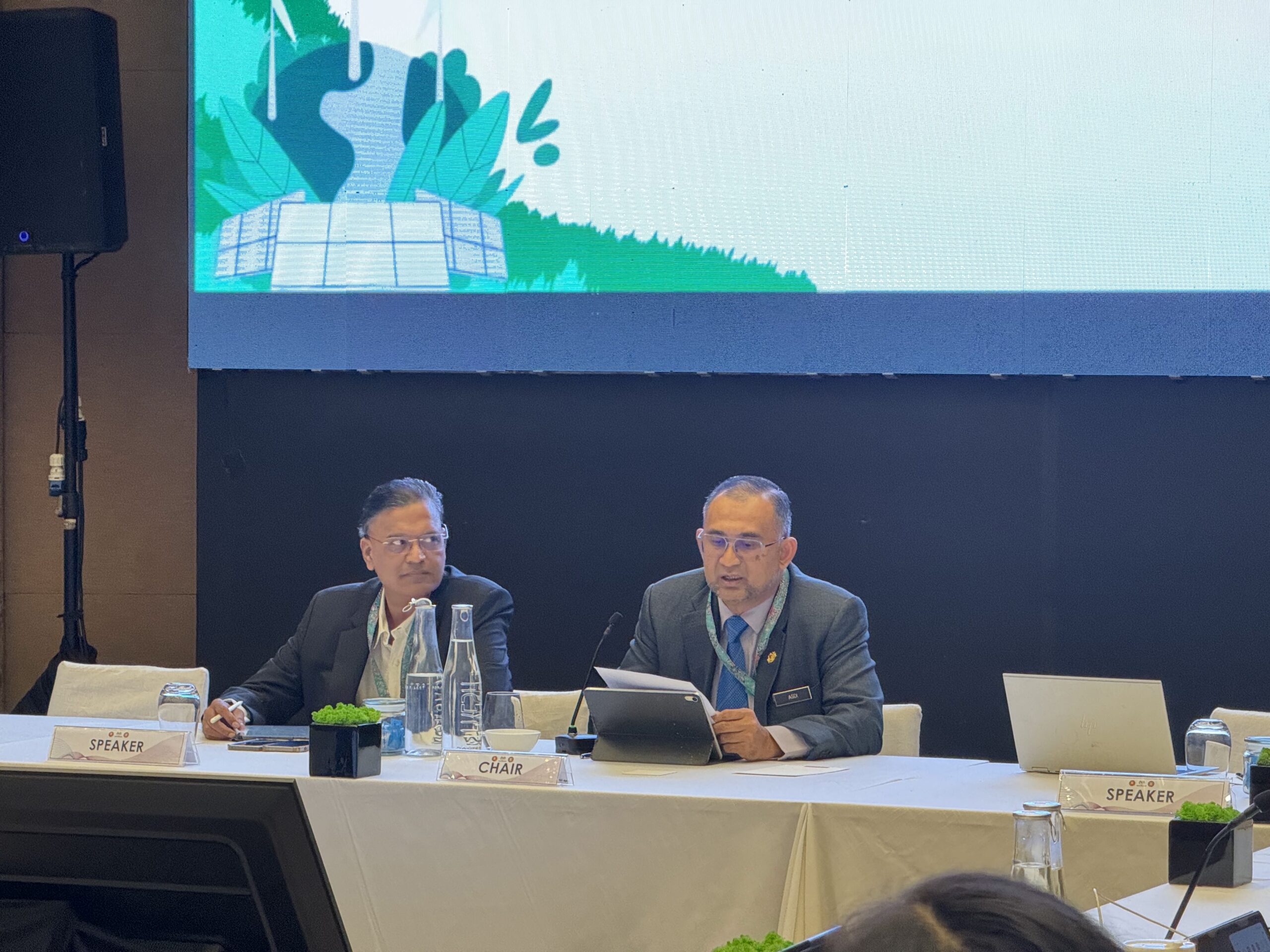
Photo 2. Opening Remarks from Asdirhyme Bin Abdul Rasib (left) and Balaji M.K. (right)
The workshop commenced with remarks from Asdirhyme Bin Abdul Rasib, RE-SSN Chair, Undersecretary of Sustainable Energy, Ministry of Energy Transition and Water Transformation (PETRA) of Malaysia, emphasised the commitment to renewable energy initiatives and the importance of setting aspirational but achievable targets for the region. Balaji M.K., Director of Advanced Energy Systems at SPP, stressed the workshop’s aims to advance renewable energy integration and sustainable energy practices in the ASEAN region with collaboration of regional and international partners.
The Charting a Collaborative Course: Aligning Renewable Energy Integration Strategies for ASEAN Workshop featured three focused sessions, each integrating renewable energy sources in ASEAN.
Session 1: Introduction of the Renewable Energy Project Database
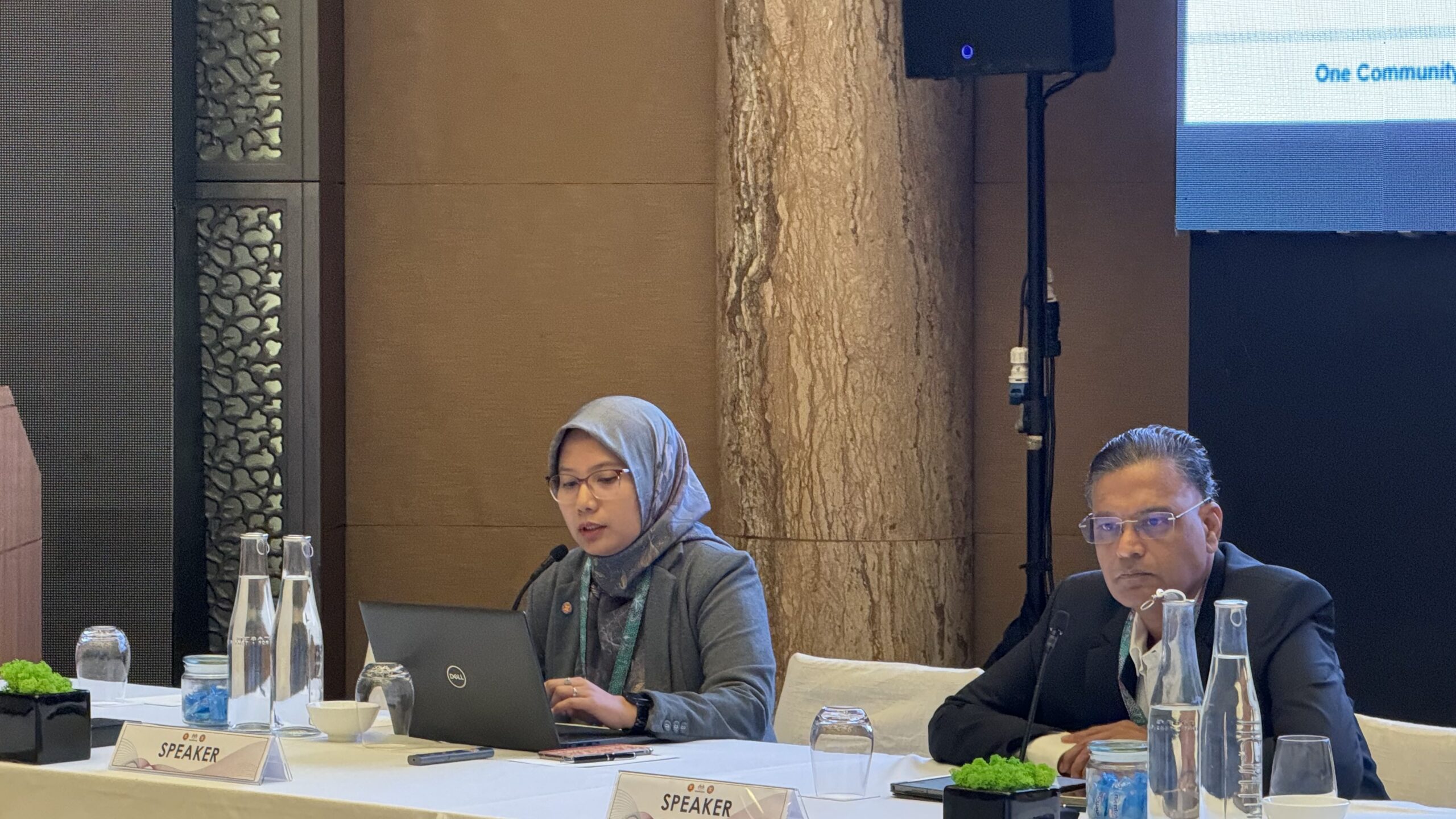
Photo 3. Silvira Ayu Rosalia (left) presented the Renewable Energy Project Database
The first session, led by the MC, Veronica Ayu Pangestika, Associate Officer of SRE Department at ACE, focused on evaluating the diversity of the Renewable Energy (RE) mix, its status, and its progress in the achievement of national targets.
Silvira Ayu Rosalia, Energy Statistician from MPP Department at ACE started the session by emphasising the introduction of the RE project database, a comprehensive and accessible platform for tracking and analysing RE projects in the ASEAN region. Furthermore, the session continued with a Q&A discussion focused on enhancing the ASEAN Renewable Energy Project database. Key points included in integrating big data tools, enhancing data visualisation capabilities, incorporating comprehensive policy and investment information, structuring the database for intuitive navigation and effective benchmarking, engaging a range of stakeholders, and establishing data collection mechanisms across AMS to ensure ongoing updates.
Session 2: Regional Cooperation for a High-Penetration Renewable Energy System in ASEAN
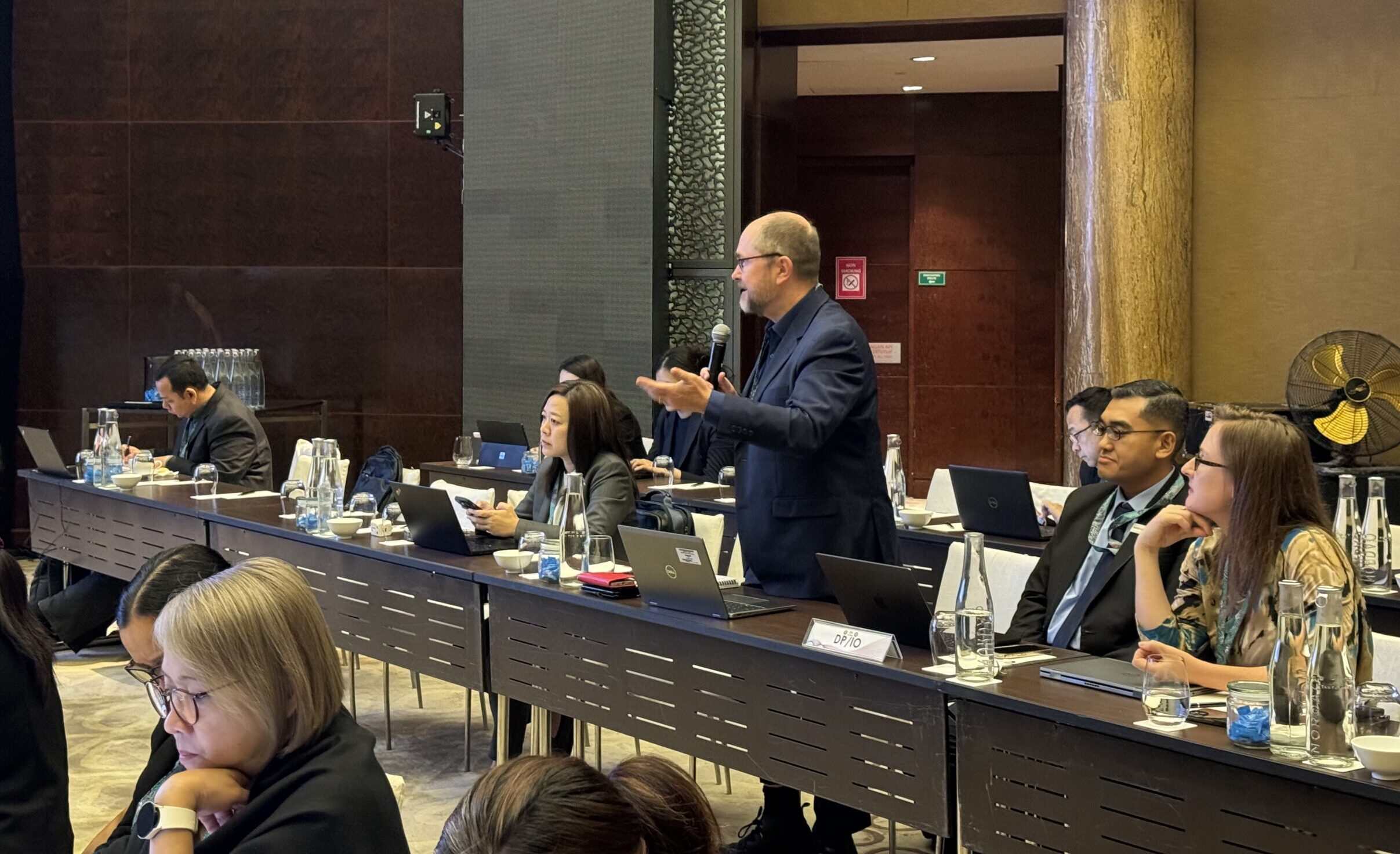
Photo 4. Q&A Discussion in Session 2 about regional cooperation for a high penetration RE system in ASEAN
Moderated by Tung Phuong, Senior Programme Officer of SPP at ACE, the second session delves deeper into understanding various policy instruments and business models to facilitate more rapid RE deployments. Zahrah Zafira, Associate Officer of SRE Department at ACE presented on how state-owned enterprises (SOEs) in ASEAN countries can act as catalysts for accelerating the RE transition, providing targeted recommendations on the specific characteristics of each country’s electricity market and SOE governance model.
Balaji M.K, emphasised the critical steps needed to unlock the rooftop solar energy potential in ASEAN. These include enhancing enabling environments, scaling up projects through consolidation, and addressing financial and regulatory barriers to facilitate widespread adoption and maximise benefits. John Garvey, Energy Specialist at Deloitte, highlighted that achieving effective deployment of battery energy storage systems (BESS) hinges on a holistic approach. This includes technological advancements, robust policy and regulatory frameworks, strategic commercial strategies, and meticulous financial considerations to maximise benefits and ensure successful implementation.
The Q&A discussion underscored the role of collaborative efforts in addressing technical, regulatory, and financial challenges to accelerate RE deployment in the ASEAN region. Overall, the second session covered the role of state-owned companies in accelerating RE adoption, the optimisation and integration of rooftop solar systems, and the effective deployment of battery energy storage systems.
Session 3: A Strategic Look at Deployment Models and Competitive Procurement for Successful Renewable Energy Projects in ASEAN
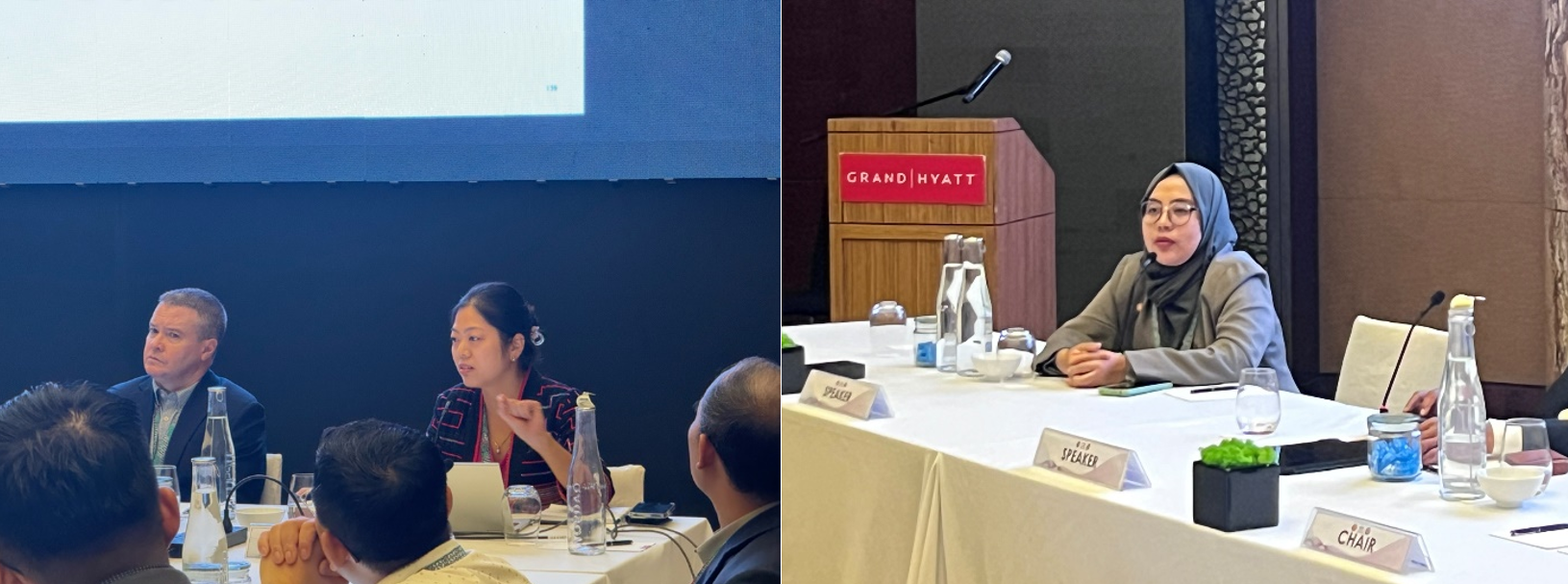
Photo 5. Madura Watanagase, Manager in Competitive Procurement Center at SPP (right) presented about Scaling Up the Procurement Mechanisms for Higher RE Adoption, moderated by Monika Merdekawati, Senior Research Analyst of ACE.
The final session, moderated by Monika Merdekawati, Senior Research Analyst of SRE Department at ACE, focused on regional cooperation for a high penetration RE system in ASEAN. Balaji M.K., presented several deployment models in RE deployment, highlighting their differences in asset ownership, financing, and payment methods. He emphasises the critical role of selecting the right model for successful RE projects in ASEAN.
Furthermore, the last session closed with a presentation from Madura Watanagase, Manager of Competitive Procurement Center (CPC) at SPP. The presentation revolves around the establishment of the Southeast Asia CPC to support and accelerate the adoption of RE and clean energy products through regional collaboration and access to technical assistance and best practices.
The Q&A discussion focused on the importance of strategic planning, grid flexibility, and supportive policies in managing the integration of solar energy into national grids while maximising its potential across the ASEAN region. The final session emphasised the need to scale up RE in ASEAN, focusing on proper procurement methods and facilitating financing and coordination among stakeholders. Cooperation and collaboration are essential to support RE adoption through deployment models, financing, and technical assistance.
Collaborative Outcomes and Future Directions
Overall, the workshop emphasised the commitment to RE initiatives and regional cooperation to advance RE integration in ASEAN. The key takeaways encapsulated the workshop’s discussions on enhancing renewable energy integration strategies through a regional renewable energy project database, integration of high variable RE from adoption of solar energy and battery energy storage, and innovative financing methodologies to procure renewable energy projects in ASEAN. Insights from this workshop will be important for enhancing renewable energy cooperation in ASEAN through innovative financing, procurement, and technology advancement.
The results of the pre- and post-workshop surveys indicated a significant improvement in participants’ understanding of the topics discussed during the workshops. In the second session, which discussed various policy tools and business strategies to accelerate renewable energy deployments, the proportion of correct answers increased from 64% to 72%. The third session, which discussed the collaborative efforts for high integration of RE systems in the ASEAN region, showed a 10% improvement in correct answers rising from 52% to 62%. Overall, 100% of participants agreed that the workshop covered the materials and met their expectations about aligning renewable energy integration strategies for ASEAN region.
The workshop materials can be downloaded here.
